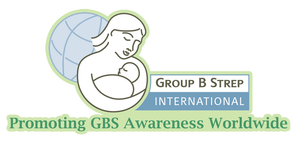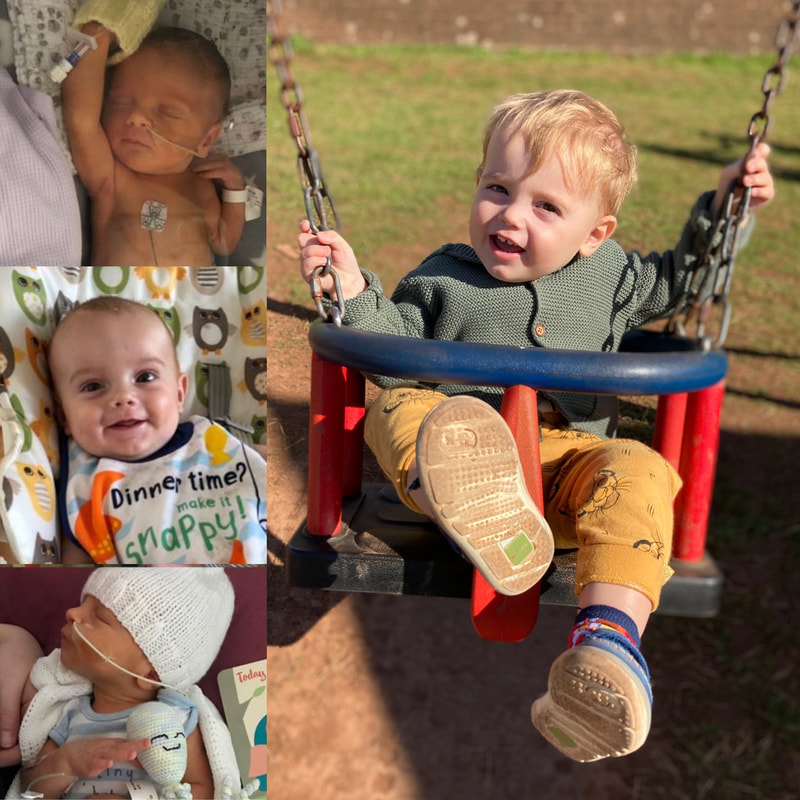I was GBS+ during my first pregnancy and had abx during labour. During my second pregnancy I was tested at 34 weeks and the result was negative so when I went into early labour at 35 weeks I was not offered antibiotics. George seemed fine at birth despite having very cold hands and feet, which in hindsight was the first sign something was wrong. When I was on the ward with him that evening after my husband left I felt he wasn’t handling very well. His cry was high pitched, he wouldn’t settle in the cot but didn’t want to be held, his feet were freezing despite wearing socks under his babygrow. I pressed the buzzer for help when he nearly choked on his own vomit whilst I was changing him.
I expressed my concerns to the midwife who fetched the transitional care nurse from neonatal who listened carefully and fetched a doctor. The doctor said George was jittery and began to question me about whether I’d taken drugs during my pregnancy that he might be withdrawing from. I’d taken nothing. She took him off to neonatal to run some tests and told me to get some sleep. I didn’t get any sleep at all, I was without my baby and could hear the other babies on the ward crying.
She fetched me when he was settled but I was not prepared to see or hear what greeted me. My tiny baby was in an incubator covered in wires. I was told he was being treated for an infection and had stopped breathing 3 times since going over to the unit - I am so thankful that he was with the doctors and nurses at this time, this story could’ve ended so differently had we have been discharged.
They performed a lumbar puncture which showed that he had meningitis. He spent the next 2 weeks on the neonatal unit being pumped with antibiotics and treated for jaundice too. Upon discharge we had numerous problems with reflux, he was classed as failure to thrive as he didn’t gain weight and had a cows milk protein allergy. I don’t know whether these things were as a result of GBS, but the first few months of his life were extremely tough. I’m happy to say that George is 18 months old and is thriving, there seem to be no issues following his meningitis thankfully.
Following my experience I believe all women should have the opportunity to test late in pregnancy and if early labour occurs it would be amazing to have a test available that provides a fast result.
-Gemma
I expressed my concerns to the midwife who fetched the transitional care nurse from neonatal who listened carefully and fetched a doctor. The doctor said George was jittery and began to question me about whether I’d taken drugs during my pregnancy that he might be withdrawing from. I’d taken nothing. She took him off to neonatal to run some tests and told me to get some sleep. I didn’t get any sleep at all, I was without my baby and could hear the other babies on the ward crying.
She fetched me when he was settled but I was not prepared to see or hear what greeted me. My tiny baby was in an incubator covered in wires. I was told he was being treated for an infection and had stopped breathing 3 times since going over to the unit - I am so thankful that he was with the doctors and nurses at this time, this story could’ve ended so differently had we have been discharged.
They performed a lumbar puncture which showed that he had meningitis. He spent the next 2 weeks on the neonatal unit being pumped with antibiotics and treated for jaundice too. Upon discharge we had numerous problems with reflux, he was classed as failure to thrive as he didn’t gain weight and had a cows milk protein allergy. I don’t know whether these things were as a result of GBS, but the first few months of his life were extremely tough. I’m happy to say that George is 18 months old and is thriving, there seem to be no issues following his meningitis thankfully.
Following my experience I believe all women should have the opportunity to test late in pregnancy and if early labour occurs it would be amazing to have a test available that provides a fast result.
-Gemma
To learn more about Perinatal & GBS Misconceptions, click HERE.
To learn more about the Signs & Symptoms of Preterm Labor, click HERE.
To learn more about the Signs & Symptoms of GBS Infection, click HERE.
To learn more about Why Membranes Should NOT Be Stripped, click HERE.
To learn more about How to Help Protect Your Baby from Group B Strep (GBS), click HERE.
To learn more about the Signs & Symptoms of Preterm Labor, click HERE.
To learn more about the Signs & Symptoms of GBS Infection, click HERE.
To learn more about Why Membranes Should NOT Be Stripped, click HERE.
To learn more about How to Help Protect Your Baby from Group B Strep (GBS), click HERE.

